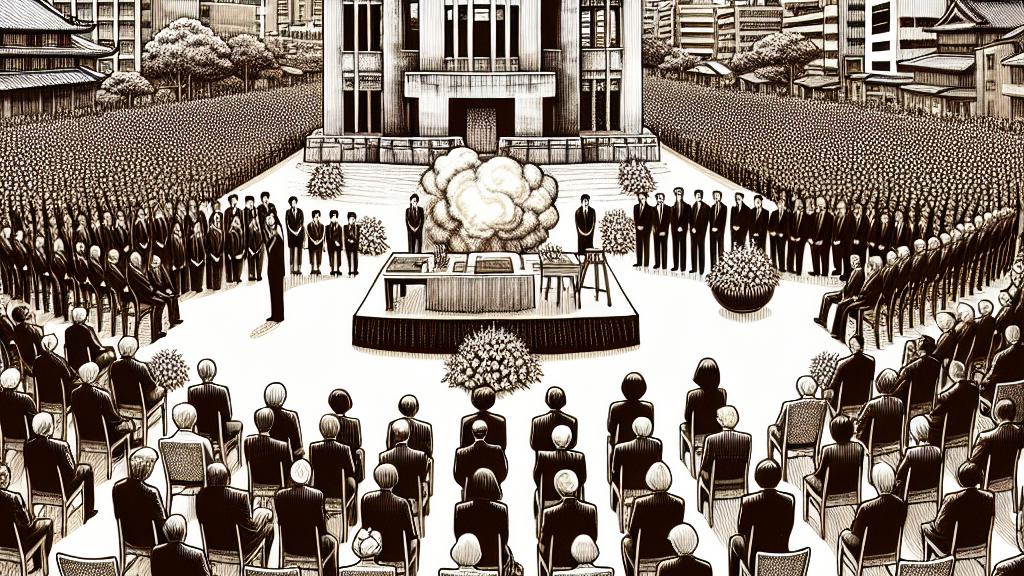Nagasaki's Bold Diplomacy: A-bomb Ceremony Sparks International Controversy!
Overview
- Nagasaki's mayor, Shiro Suzuki, defends excluding Israel from the A-bomb memorial ceremony.
- Diplomatic tensions rise as US and UK ambassadors boycott over Israel's non-invitation.
- The memorial serves not only as a remembrance but also a call for peace and nuclear disarmament.

The Controversial Decision
On August 9, 2024, Nagasaki, Japan, held its annual ceremony to commemorate the tragic atomic bombing from 1945, during which approximately 74,000 people perished. However, this year, the ceremony became a focal point of diplomatic controversy as Mayor Shiro Suzuki defended his decision not to extend an invitation to Israel's ambassador. Suzuki clarified that this choice was made to avoid disruptive protests related to the ongoing Gaza conflict and insisted that it was not politically motivated. The subsequent refusal of the US and UK ambassadors to attend highlighted how sensitive international relations can impact memorial events, marking a shift in how historical remembrance dialogues intersect with contemporary geopolitical issues.
Remembering History and Its Impact
The atomic bombing of Nagasaki, which occurred just three days after Hiroshima's bombing, represents one of the darkest chapters in human history, serving as a stark reminder of the consequences of nuclear warfare. Each year, the memorial not only honors the victims but also aims to reinforce the message against nuclear proliferation. Mayor Suzuki underscored the vital importance of sharing the stories of survivors to educate future generations about the implications of nuclear attacks. By making this history a focal point, the ceremony advocates for disarmament and strives to prevent the repetition of past mistakes, echoing the sentiments of global peace advocates who call for a world free of nuclear threats.
Advocating for Disarmament Amid Global Challenges
During the memorial, there was a compelling call for nuclear disarmament, reflecting heightened concerns about current geopolitical tensions, including the ongoing war in Ukraine. Mayor Suzuki and other officials urged nuclear-capable nations to reconsider their reliance on deterrence strategies and pushed for actionable commitments toward nuclear abolition. Furthermore, the ceremony resonated with the voices of atomic bomb survivors, who passionately advocate for a future where such weapons do not exist. This blend of past memories with present challenges creates a profound narrative about the need for continued vigilance against the dangers of nuclear arms and the critical importance of promoting peace through dialogue and diplomacy.
The International Community's Response
The decision to exclude Israel from this important memorial ceremony ignited various reactions from around the world, particularly among diplomatic communities. Many expressed concern that such exclusions create a negative precedent and possibly reinforce troubling comparisons with other excluded nations, such as Russia and Belarus. Commentary from the US and UK embassies emphasized disappointment over what they perceived as an oversight in international diplomatic relations. This incident illustrates the intricate web of contemporary diplomacy and international expectations that influence how nations engage with historical narratives and collective remembrance, highlighting an ongoing struggle to balance respect for historical suffering with today's political realities.

Loading...